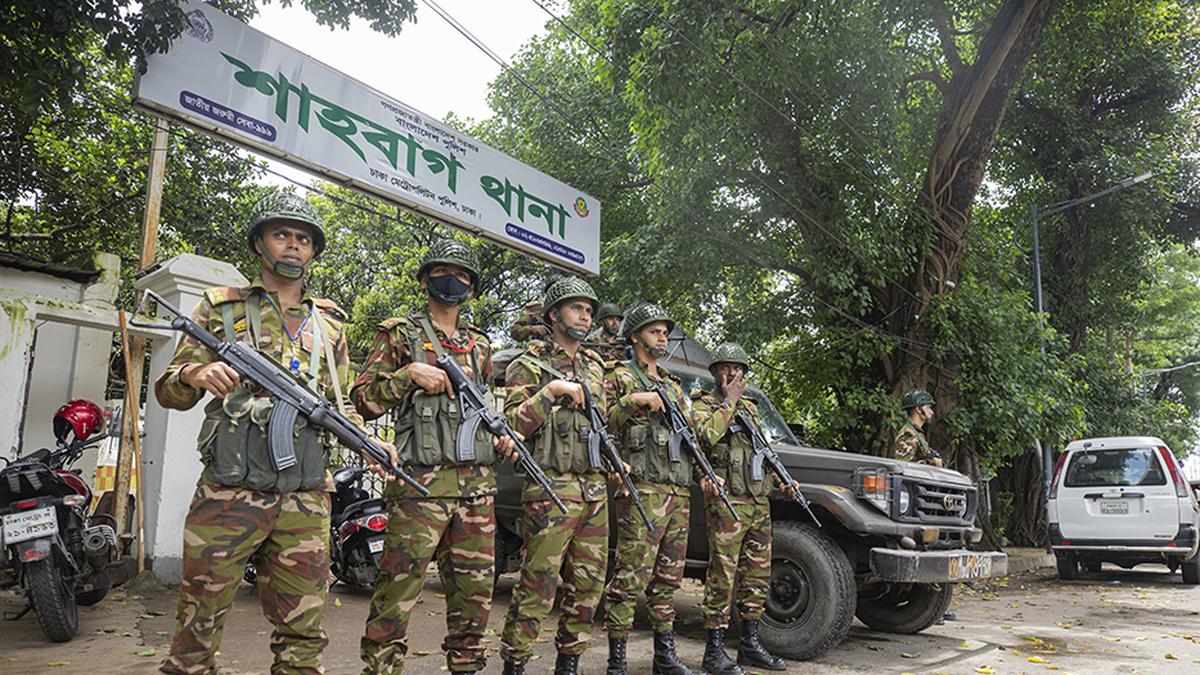
Bangladesh to mark February 25 as national military martyrdom day, amid 2009 Pilkhana killings investigation
The Hindu
Bangladesh designates February 25 as national military martyrdom day, commemorating the 2009 Pilkhana killings amid ongoing investigations.
Bangladesh will mark February 25 as the “national military martyrdom day”, the interim government of Dhaka announced on Sunday (February 23, 2025). The announcement formalises months long discussion within the Prof. Muhammed Yunus-led government about the February 25-26, 2009 Pilkhana killings of military officers in the failed mutiny by a section of the BDR (Bangladesh Rifles).
The mutineers had looted weapons and tried to launch a military coup but were crushed which led to the death of 74 military personnel, out of which 57 were army officers. The mutiny was the last big rebellion by sections of the Bangladesh armed forces which has played an important role in the political evolution of the country.
Also read: Bangladesh sentences border guards for 2009 mutiny
The decision of Sunday (February 23, 2025) has come just a day after the 21 February when Bangladesh marks the martyrdom of the students who died in police firing in 1952 during the Pakistan rule.
Since the martyrdom of students in Dhaka under police firing on 21 February 1952, February has been known as the month dedicated to the mother tongue of the region which subsequently became Bangladesh in 1971. The decision of the government to create a new memorial day dedicated to the military casualties during the mutiny and the consequent crackdown led to social media discussion about the timing of the decision.
Also read: 824 people charged in 2009 BDR mutiny
The interim government has been focused on ensuring a thorough investigation into the 2009 incident and in December a commission headed by A.L.M Fazlur Rahman was ordered to probe the incident. The mutiny was investigated during the Sheikh Hasina years and around 450 individuals were given punishments ranging from death sentence to varied jail terms. However, questions were raised about the trial during the Hasina regime which came to an end on 5 August 2024.













